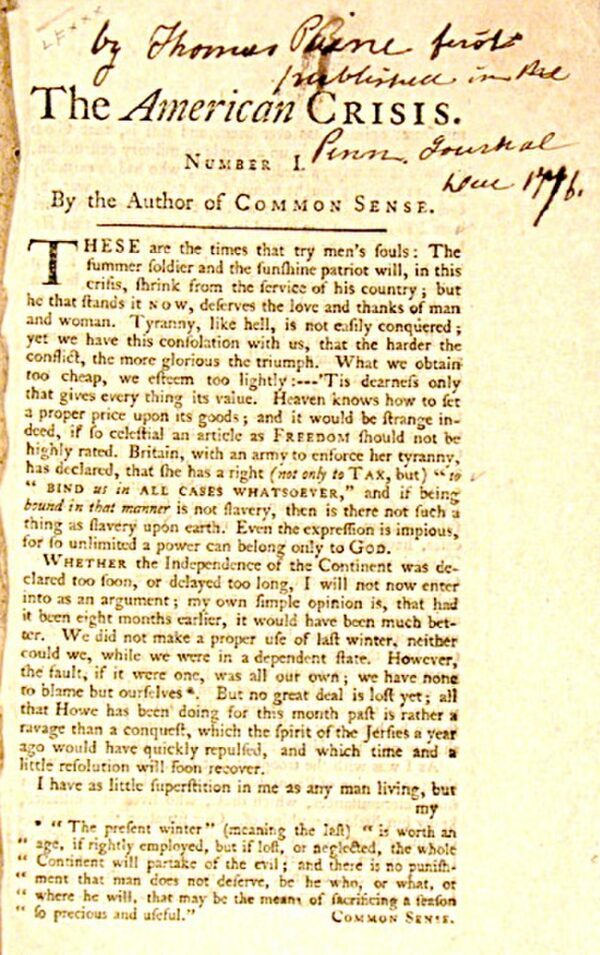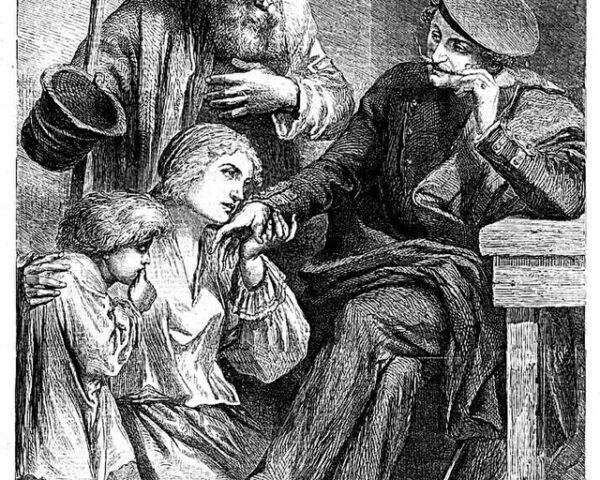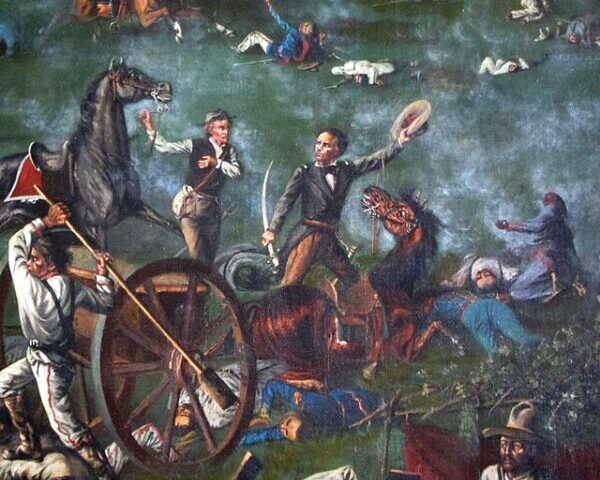On December 19, 1776, Thomas Paine published the first of his series of pamphlets titled “The American Crisis” in The Pennsylvania Journal. This work marked a pivotal moment in the American Revolution. Beginning with the now-iconic line, “These are the times that try men’s souls,” the pamphlet served as both a rallying cry and a source of hope for an American populace deeply mired in the hardships of war.
By the winter of 1776, the American Revolution was facing severe challenges. The Continental Army, under George Washington, had suffered numerous setbacks, including a series of defeats in New York and a retreat across New Jersey. Morale among the troops was dangerously low, desertion rates were climbing, and the prospect of achieving independence seemed increasingly bleak. Many colonists were beginning to doubt whether the fledgling nation could realistically stand against Britain’s superior military force.
In this atmosphere of disillusionment, Paine’s pamphlet arrived as a powerful motivator. Written in his trademark direct and impassioned style, “The American Crisis” aimed to strengthen the resolve of soldiers and civilians alike. Paine, already famous for his earlier revolutionary work, Common Sense, was acutely aware of the potential of words to inspire action. In this new series, he sought to rekindle hope, reinforce the moral necessity of the war, and rally the people around the cause of independence.
The opening lines of “The American Crisis” remain among the most famous in American history:
“These are the times that try men’s souls. The summer soldier and the sunshine patriot will, in this crisis, shrink from the service of their country; but he that stands by it now, deserves the love and thanks of man and woman.”
With these words, Paine framed the Revolutionary War as a profound test of character. He distinguished between those who would falter in the face of adversity and those who would rise to meet the challenge. His message was clear: perseverance in this time of trial was not only honorable but essential.
Paine’s arguments resonated deeply because they directly addressed the fears and concerns of his audience. While acknowledging the immense difficulties they faced, he urged them to consider the broader significance of their struggle. Paine portrayed the war as a fight against tyranny, casting King George III as the embodiment of oppression. His vivid language and moral clarity gave Americans a powerful sense of purpose, transforming their sacrifices into acts of profound meaning.
The timing of “The American Crisis” proved critical. George Washington reportedly ordered the pamphlet to be read aloud to his troops just days before the daring attack on Hessian forces in Trenton, New Jersey. This surprise assault, which resulted in a decisive American victory, marked a turning point in the war. Many historians credit Paine’s words with helping to inspire the soldiers during one of the Revolution’s darkest hours.
Beyond the immediate impact on the battlefield, “The American Crisis” played a significant role in galvanizing public support for independence. Paine’s writing appealed to a shared sense of struggle and responsibility, uniting colonists who had grown uncertain about the feasibility of the revolution. His arguments emphasized that the hardships of the present were necessary to secure a future defined by liberty and self-determination.
The first installment of “The American Crisis” marked the beginning of a series that Paine would continue to write throughout the war. Each pamphlet served as a source of inspiration and justification for the fight against British rule, reaffirming the commitment to independence. Paine’s ability to articulate complex ideas in language that resonated with ordinary people made his work uniquely effective. His writings not only provided immediate motivation but also helped shape the identity of a nation founded on the principles of freedom and perseverance.
Today, “The American Crisis” stands as a testament to the power of rhetoric in influencing historical events. Paine’s ability to inspire action through his words underscores the profound impact that ideas can have in shaping the course of history. His work remains a symbol of the perseverance of the American spirit.






